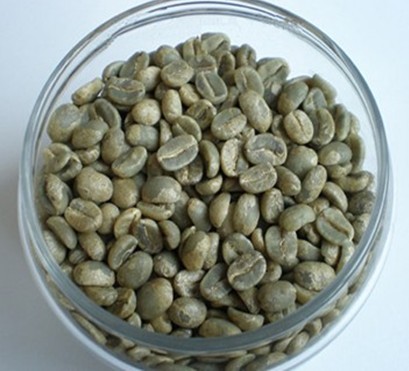|
Yunnan small grain coffee from China has
been rated as the world's highest
quality coffee |
Small grain
coffee is suitable for growing in mountainous
areas at an altitude of 800-1800 meters, mostly
planted in dry and hot river valleys at an
altitude of around 1100 meters, so the acidity
is moderate, the aroma is rich and mellow.
Lincang, Baoshan, Simao, Xishuangbanna, Dehong
and other regions in Yunnan, China have unique
environments suitable for the growth of small
grain coffee, and the quality of small grain
coffee produced is excellent. After inspecting
the coffee planting and initial processing bases
in Yunnan, China, tasting experts from the
International Coffee Organization have evaluated
Yunnan coffee in China as a type of Colombian
wet processed small grain coffee, which is the
highest quality coffee in the world.
Yunnan small
grain coffee, also known as Arabic coffee, is
native to Ethiopia and is an evergreen shrub.
The plant is relatively small, 4-5 meters tall,
with slender branches and early corkification of
the branches. The leaves are small and pointed,
long and elliptical in shape, harder than medium
grain seeds, and the leaf edge ripples are thin
and obvious. The fruit is relatively small, with
a ratio of 4.5-5:1 between fresh fruit and dried
beans. The outer skin of the seed is thick and
tough, making it easy to separate from the
kernel. The seeds are relatively small, with
about 1700-2600 seeds per kilogram of coffee
beans. There are fewer single node fruits, about
12-15, but there are more branch fruits.
Therefore, under good management, the yield is
not lower than that of medium seed seeds. The
plant is wind resistant, drought resistant
compared to medium grain varieties, and has the
weakest cold resistance, but is rarely infected
with rust. It has a high yield, a strong flavor,
and strong irritancy.
Typica and
Bourbon, two classic high-quality coffee
varieties, also known as Red Top Coffee and
Green Top Coffee, are the main cultivated
varieties of coffee in Yunnan. In 1991, the
Catimor series of varieties with stronger
antiviral ability and higher yields were
introduced from Kenya. A variant of the Arabian
species (also known as the small grain species).
Due to the similarity in morphology and habits
between these two varieties, they are often
mixed cultivated.
Due to its
unique geographical environment and climatic
conditions, Yunnan coffee in China has developed
a unique flavor that is strong but not bitter,
fragrant but not strong, and has a hint of
fruity flavor. It is evaluated by world-class
coffee experts as the best coffee in the world,
and its cultivation technology and yield are
also world-class. Coffee is rich in protein,
fat, sucrose, starch, caffeine, and other
substances. After being made into a beverage, it
has a strong aroma, a delicious taste, and rich
nutrition. Therefore, it has become one of the
world's three major beverages composed of tea
and cocoa, and ranks first.

From the
perspective of coffee botany, Yunnan small grain
coffee has genetic similarities with the
recognized best Jamaica Blue Mountain and Kona
in Hawaii. Yunnan coffee is a variant of the
Arabic original species, which has been
cultivated and domesticated for a long time. It
is generally known as Yunnan small grain coffee
and has a cultivation history of more than 100
years. It is the best quality coffee in the
world, and its quality is determined by various
factors such as the environment, climate, and
cultivation management techniques in which it
grows. Its optimal growth environment is low
latitude, high altitude, sufficient rainfall,
and suitable sunlight, so the area between
latitude 15 and the Tropic of Cancer is an ideal
growth zone for coffee. However, other regions
in this area, such as Hawaii and Saudi Arabia in
the United States, with low elevations or less
rainfall in the desert, are not conducive to
coffee growth. Only southern Yunnan, located in
this area, happens to have various conditions.
According to experts, small grain coffee should
be grown in mountainous areas at an altitude of
800-1800 meters. If the altitude is too high,
the taste will be sour, and if it is too low,
the taste will be bitter. Yunnan coffee is
mostly grown in dry and hot river valleys at an
altitude of around 1100 meters, so the acidity
is moderate, the aroma is rich and mellow. In
terms of climate conditions, the long duration
of light in southern Yunnan is conducive to
plant growth and photosynthesis, and the large
temperature difference between day and night,
low temperature at night, is conducive to the
accumulation of coffee nutrients. Therefore,
Yunnan small grain coffee contains more
effective nutrients than other foreign coffee
varieties. Small grain coffee is susceptible to
rust, and the production and quality are greatly
affected by the occurrence of rust disease. Due
to the distinct dry and wet conditions in the
hot areas of Yunnan, fresh fruits ripen red
every year and enter the dry season. The low
relative humidity is not conducive to the
formation and growth of rust blisters.

Due to the
excellent quality of Yunnan coffee, it entered
the London market as "Lujiang No.1" in the 1960s
and was rated as a first-class product. In
recent years, world-renowned coffee companies
such as Nestle and McDonald's have opened up raw
material bases in Yunnan, and the products
produced in Yunnan have gradually gained
popularity both domestically and
internationally. The average yield of coffee in
Yunnan province has reached 96.4 kilograms, and
a household contracted land in Lujiang has set a
world record of 400 kilograms. "I have seen
countless coffee plantations around the world,
and the management here is world-class, with the
highest yield," said Steve, a chief coffee
expert from the United Nations Development
Programme, after visiting the coffee plantation
in Lujiang Farm.
|